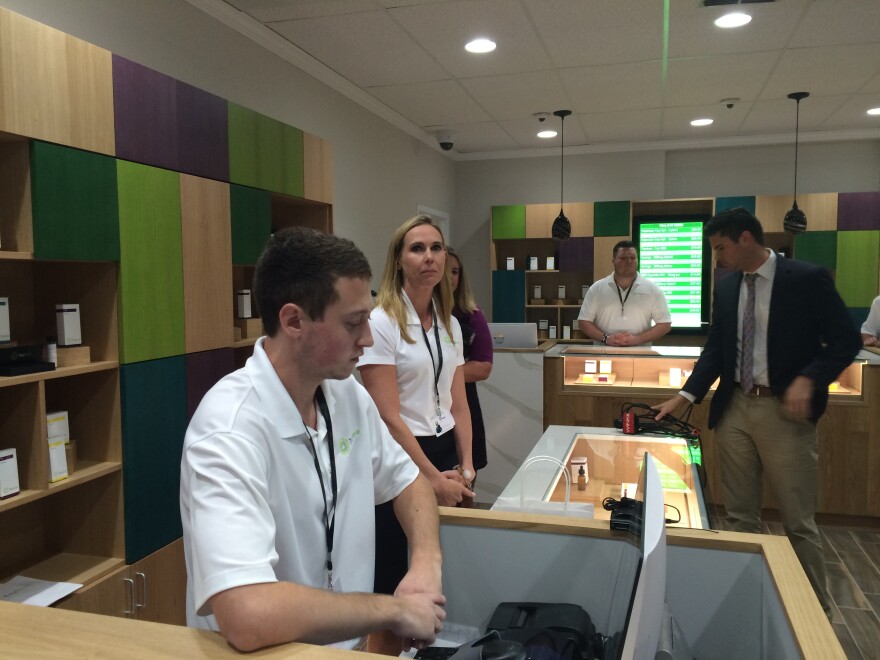State health officials have dropped an appeal of a Tallahassee judge’s ruling and agreed to allow Florida’s largest medical marijuana operator to open more dispensaries than a state law allowed.
Quincy-based Trulieve challenged a limit on the number of storefronts that was included in a 2017 law aimed at carrying out a 2016 constitutional amendment that broadly legalized medical marijuana.
The cap, initially set at 25 dispensaries for each operator, gradually increases as the number of eligible patients in a statewide database increases. The cap, now at 35, is slated to end in April 2020.
Trulieve, which currently operates 26 dispensaries, argued the restriction “arbitrarily impairs product availability and safety” and “unfairly penalizes” pot providers.
Trulieve also argued that the cap was problematic because it was imposed after the company had already opened 14 retail locations throughout the state. Trulieve said it would have chosen different locales had it known the number of storefronts would be limited, the company’s lawyers argued.
Leon County Circuit Judge Karen Gievers agreed, finding that the voter-approved constitutional amendment included no caps on the number of dispensaries.
“The evidence clearly and conclusively establishes beyond any doubt that conveniently located medical marijuana dispensaries (as opposed to vehicle delivery, the only allowed alternative means of dispensing) promote authorized users’ improved access to medical marijuana products and related information and services, at lower cost, and promote public safety (the stated goals for regulation in the amendment),” Gievers wrote in a February ruling. The February decision followed up on a January order that also found the dispensary limit was unconstitutional.
The settlement agreement, signed Friday by Trulieve CEO Kim Rivers and state Office of Medical Marijuana Use Director Courtney Coppola, comes six weeks after the Department of Health filed a notice of appeal in the case with the 1st District Court of Appeal.
Under the agreement, Trulieve is allowed to have a total of 49 dispensaries — its 14 original dispensaries, plus the “temporary cap” of 35 included in the 2017 law — before the cap goes away in 2020.
In a joint motion filed Monday, the state and Trulieve notified the appellate court that “the parties have reached a settlement under which both parties have resolved the dispute and agree that the final judgment should be vacated.”
If the appeals court grants the request to vacate Gievers’ order, only Trulieve, and not any of the state’s other medical marijuana operators, would be allowed to have the extra dispensaries.
In a statement issued Monday, Rivers called the settlement a “victory for Florida’s patients.”
“Our suit was first and foremost about patient access; working around the caps meant we had to build up a distribution model based on the statutorily-mandated geographic distribution instead of where patients live, effectively driving up costs and restricting patient access to the relief they need,” Rivers said.
Removing the caps gives Trulieve “the ability to open stores in locations where patients live, which will allow us to fulfill our goal of reaching every patient as efficiently, safely, and consistently as possible, including and especially those in more rural areas,” she said.
Trulieve recently made other news. The North Florida company — which has more than 60 percent of the state’s medical marijuana market — was the state’s first medical marijuana operator to sell whole-flower cannabis. The March 21 Tallahassee sale came just days after Gov. Ron DeSantis signed into law a measure repealing the state’s ban on smokable medical marijuana. Trulieve is now one of six medical cannabis operators allowed to sell whole-flower marijuana to patients.

